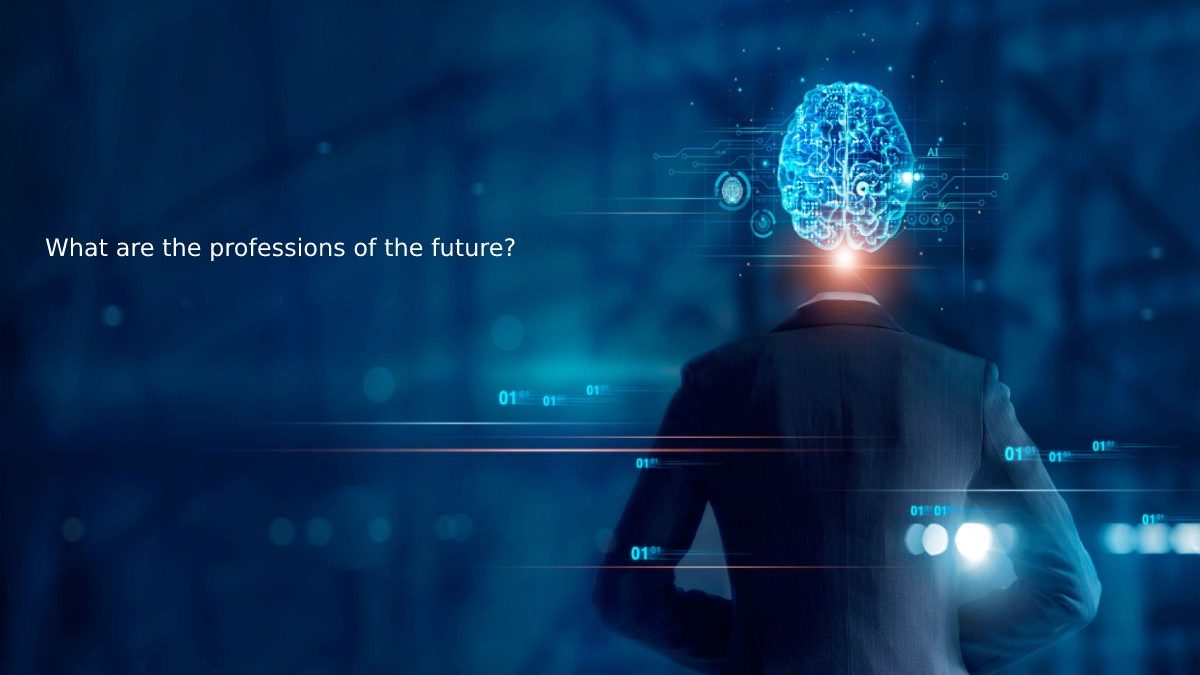What are the professions of the future?. An expert in Artificial Intelligence (AI), a brand new master’s degree in Machine Learning (ML) and a robotics engineer have a friendly chat after their work day in one of the intelligent factories —or smart factories— on the outskirts of the city. Gradually they are joined by other young engineers who are experts in nanotechnology, 3D printing and genetics. There are probably frequent allusions in the conversation to powerful algorithms, software design, cloud services. DNA, prototyping, big data, or the Internet of Things (IoT).
We are facing the professionals of the Fourth Industrial Revolution, natives with digital skills who are leading the transformations in production systems and business models. Their work evolves in a collaborative environment of fusion between industry and the Internet in critical sectors such as energy, home automation, automotive, aeronautics and pharmaceuticals. And this multidisciplinary coordination dramatically amplifies the effects on efficiency, flexibility and productivity.
But they must not only be technically competent. The most sought-after and sought-after skills and competencies in the 21st century include such characteristically human skills as complex problem solving, critical thinking, and emotional intelligence. To name just a few. However. In this sense, nomads stand out, and workers are appreciated for their flexibility, creativity and collaborative spirit.
Table of Contents
THE KEYS TO EMPLOYABILITY
The World Fiscal Forum in Davos concluded in its report The Future of Jobs (2016) that “65% of children entering primary school today will end up working entirely new jobs that do not yet exist”.
This means that the new labour market entails the loss of routine and mechanical jobs. And in the same way, it favours the demand for positions in information technology, media and entertainment or professional services. The key to employment does not lie in the appearance of new jobs but 0in the evolution of a large part of the existing ones.
THE WORKERS OF THE FUTURE
White Hacker:
Moreover. The fight against cybercriminals now has its name. Its function? Break security for non-malicious reasons, such as to test the security of your system. They will become experts in penetration testing and vulnerability assessments.
Growth Hackers:
they are in charge of the company growing in new channels or markets, and the perfect profile combines programming, engineering, marketing and online positioning. They collect data. Analyze it and draw conclusions to implement creative strategies that position a product or service ahead of the competition.
AI Experts:
Moreover. Using algorithms and guided learning allows you to work with the data. Learn from it and make a prediction or suggestion.
IoT Experts:
the Internet of things will grow by bounds and limits and, combined with AI, will allow new opportunities for growth and development. Its most frequent uses will be the monitoring of energy and the use of materials through intelligent technology. Security management or the automation of business processes.
Developers of INTELLIGENT Transport:
However. Engineers specializing in light vehicles made of carbon nanotubes. A material with unusual and valuable properties for its technological applications, will emerge. It is considered the first material known to humanity capable, in theory, of indefinitely supporting its weight suspended above our planet.
Guardians of the Climate:
the green economy with a planetary conscience will also favour the appearance of new trades, such as, for example. Tracer of products and services to control the carbon footprint or vertical farming of hydroponic crops in cities.

